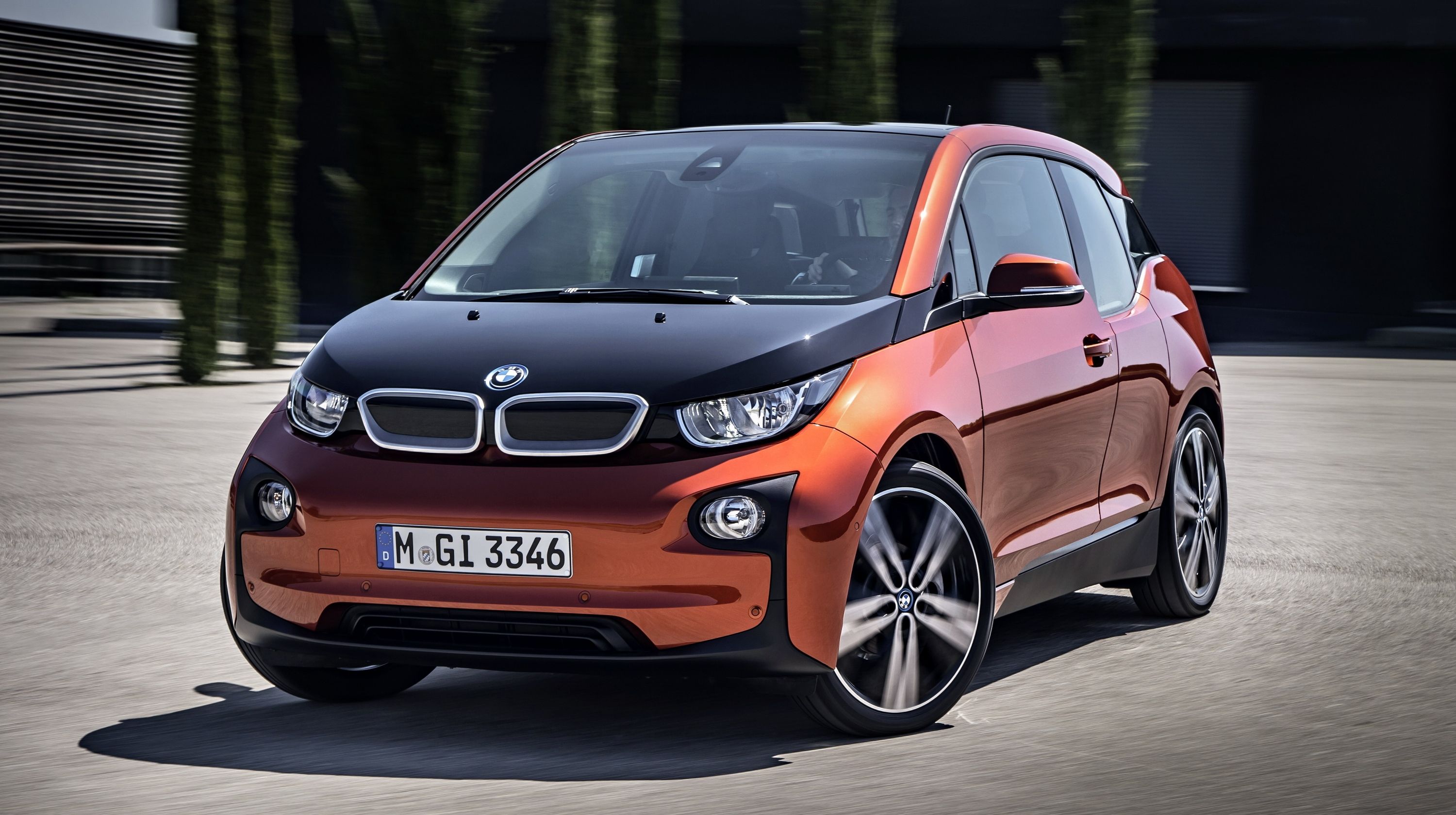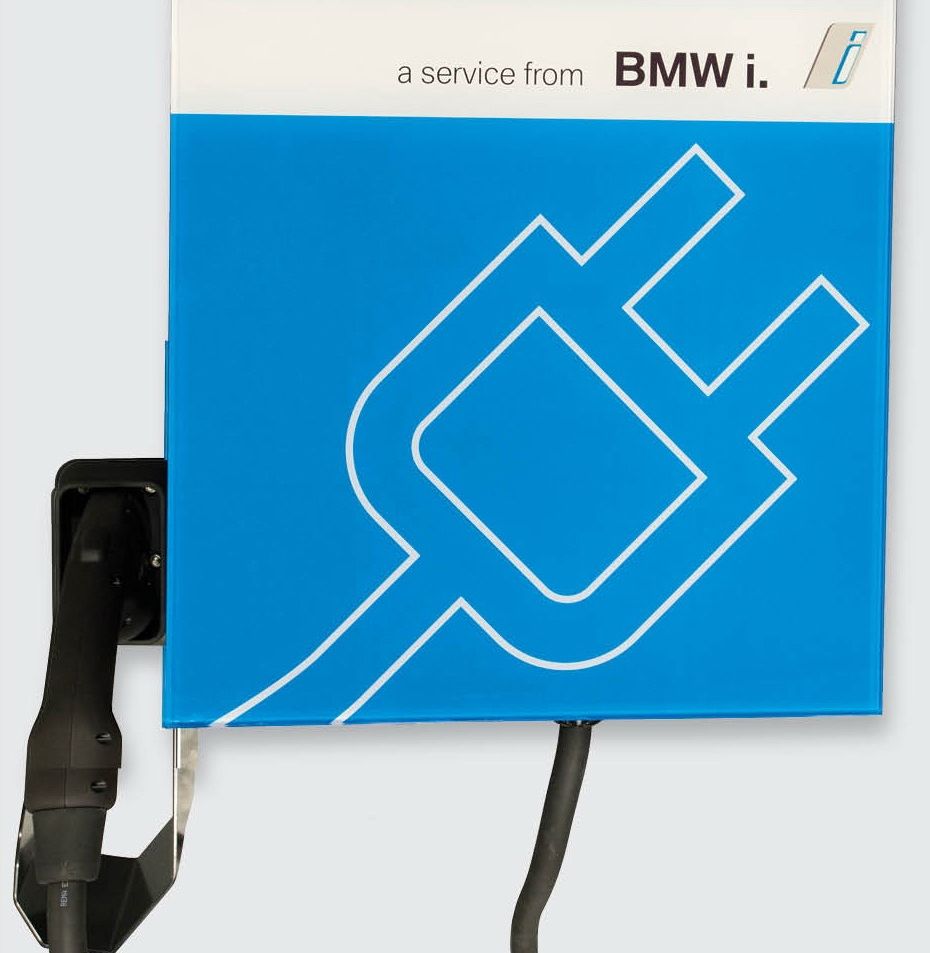BMW->ke178 is continuing its plan to make the transition to electric vehicles as simple as possible. The i3 is already a huge step in the right direction, as it introduces a Carbon Fiber Reinforced Plastic chassis, aluminum sub frames and a small gasoline range extender all at a relatively low price. The main goal is to get people into electric vehicles by taking as much of the compromise out of the equation as possible. Well, BMW is now going one step further with the introduction of the i DC Fast Chargers and the ChargeNow DC Fast Program. BMW developed the i DC Fast Charger with the help of Bosch Automotive Service Solutions. The i DC Fast Charger is a small (31-by-19-by-12 inches), 100-pound box that owners can mount to a wall that will charge the battery up to 80 percent in 30 minutes. The i3’s Fast Charger will set you back to the tune of $6,548, which is cheap in comparison to most DC Fast Chargers. A standard charger will “fill up the tank” in about 6 to 8 hours. With that in mind the Fast Charger seems worth the premium, especially considering it’s a slick-looking, smallish unit that will fit nicely in most garages.
ChargeNow DC Fast is a program BMW has developed with the help of NRG eVgo, and will offer unlimited, no cost, 30-minute charging for i3 drivers in California until December 2015. This will help reduce range anxiety considerably on long trips through The Golden State. To access the ChargeNow DC Fast program, i3->ke4694 owners must equip the DC Fast charger option, and sign up for a ChargeNow Card. Doing so will give owners access to all eVgo DC Fast chargers across California. Even at a price though, the ChargeNow program will help dramatically in the implementation of electric vehicles as primary cars for households. It still takes a bit longer than stopping at a gas station, but if placed properly, these ChargeNow stations can provide some resting time or even some sightseeing on long trips. This in tandem with the i DC Fast Charger in the home and the i3 becomes a very useful and eco-friendly option.
Click past the jump to read more about BMW's new i DC Fast Chargers And ChargeNow DC Fast Programs.
Why It Matters
Electric Vehicles are the future. Unfortunately for guys like us who read about horsepower figures and 0-to-60 times, the internal-combustion engine is dying. It has to. And if you think about it, it’s somewhat silly that over 100 years since it’s invention, in such a modern age where a handheld device can send information across the globe, we still rely on its outdated technology. So as much as it pains me to say, the internal-combustion engine must go and we must embrace the electronic future. That’s not to say it has to be boring, Tesla proved that an electric luxury sedan can be both interesting and fun, and BMW is proving that the small electric hatchback can be the same.
This change also doesn’t have to happen overnight either, BMW, Porsche->ke1, McLaren->ke284, and Ferrari->ke252 have all proved what can be done with hybrid technology to make a car blood-boilingly exciting. The electric car->ke1030 has real promise, even to us gearheads. But to make this happen, we need to build a fast charging infrastructure and BMW seems to be making serious headway in this endeavor.
These in-home i DC Fast Chargers will make everyday life much simpler for i3 drivers. This way once you come home from your day, you aren’t stuck in your house for eight hours while it charges. A quick sandwich and a bathroom break and you’re out the door again. Add in the ChargeNow program and you don’t have to find a hotel every hundred miles or so. So with making these technologies so readily accessible, BMW is in turn making the i3 – or any EV for that matter – a very realistic everyday possibility. At the moment EV’s seem to be second cars, the car that you run quick errands in. But with these kind of programs, EV’s can be the main vehicle of the everyday working man or woman. One small step for BMW, one very large step for the Electric Vehicle.
Similar Tech
BMW isn’t the only one with these kinds of ideas. Billionare Elon Musk and Tesla have been building Supercharging stations all across the country and are even starting in Europe. What’s even smarter is that they are placed cleverly, in strip malls and little shops, so that Tesla->ke1842 owners can sit down and have a coffee or do a little shopping while they charge their Model S->ke3329. And even better than that, is the fact that these Supercharging stations are free to any Tesla owner who opted in or bought a model that included the Supercharger service. They can charge half of the battery in 20 minutes, or so, which is impressive relative to the BMW, considering the Model S has a much larger battery and far longer range.
BMW also isn’t the only one with DC Fast Chargers for the home, however it offers the best one. Nissan->ke62 offers one for the Nissan Leaf->ke3484, but while the BMW’s is the size of a large briefcase, the Leaf’s is the size of a large refrigerator. Not to mention the Bimmer’s $6,548 price tag seems like a steal compared to Nissan’s $15,500 Fast Charger. If you consider the fast charging stations into the base price both cars, the Leaf becomes $45,500 and the i3 $47,898. So the i3 comes at a $2,300 premium, but you get a faster, more spacious and far more technologically advanced car, and your fast charger isn’t the size of Honey Boo Boo’s mom.
All things considered, including the cheaper price for the fast charger, a good charging station program (even if it is only for Cali), and a lower MSRP than the Tesla Model S, the BMW i3 seems to be the best EV deal on the market. If BMW can keep up the good work, high quality, exciting electric vehicles are in our not so distant future.


